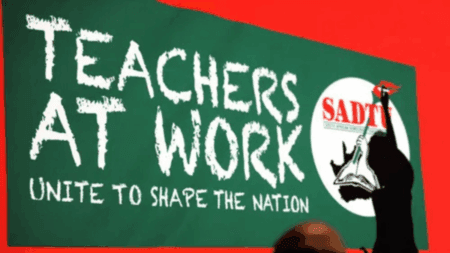Workers Day, celebrated annually on 1 May in South Africa, is a public holiday that honours the contributions and struggles of workers across the country. Rooted in the international labour movement, the day holds deep historical significance, especially in South Africa where it also marks the sacrifices made by workers during the fight against apartheid. As we commemorate this day, it is important to reflect on how the job market has evolved over the decades.
The Historical Context of Workers Day
Workers Day has its origins in the global labour movement’s demand for better working conditions, fair wages, and the eight-hour workday. In South Africa, the holiday gained special prominence during the 1980s as trade unions like COSATU (Congress of South African Trade Unions) played a critical role in opposing apartheid. May 1 was officially recognised as a public holiday after the country’s transition to democracy in 1994, signalling a new era for labour rights.
The Job Market Then vs Now
1. Employment During Apartheid
Before 1994, South Africa’s job market was highly segregated. Employment opportunities were racially structured, with black South Africans confined to low-skilled, low-paying jobs under exploitative labour laws. Trade unions were often banned or heavily restricted. Minimum wage laws were almost non-existent for most sectors that employed black workers, and job reservation policies favoured white South Africans.
2. Post-1994 Labour Reforms
Democracy brought significant changes to the labour landscape. The introduction of progressive labour legislation like the Labour Relations Act (1995) and Basic Conditions of Employment Act (1997) provided greater protection for workers, including the right to strike, unionise, and demand fair treatment.
Government initiatives such as the Expanded Public Works Programme (EPWP) and Sector Education and Training Authorities (SETAs) were introduced to address unemployment and skills shortages. Additionally, the establishment of the National Minimum Wage (NMW) in 2019 was a major milestone in protecting vulnerable workers.
Also check: Effective Job Interview Strategies: What to Say and What Not to Say
Key Changes in the Modern Job Market
1. Rise of the Service Sector
Over the years, the South African economy has shifted from mining and manufacturing to a more service-oriented structure. Sectors such as retail, finance, telecommunications, and healthcare have grown rapidly, creating new types of employment and demanding different skills from the workforce.
2. Growth of Informal and Gig Work
Despite formal labour protections, a significant portion of South Africa’s workforce remains in the informal sector, including street vendors, domestic workers, and freelance service providers. The rise of digital platforms has also introduced gig work, especially in delivery and ride-hailing services. While these jobs provide income, they often lack job security and benefits like pensions or healthcare.
3. Youth Unemployment and Skills Mismatch
One of the most pressing issues in the job market today is youth unemployment, which remains stubbornly high. Many young South Africans struggle to find work due to a skills mismatch—where education and training do not align with the needs of the economy. This has led to growing investment in TVET colleges, learnerships, and entrepreneurship support to better equip young people.
4. Impact of Technology and Remote Work
The digital era has reshaped the job market further. The COVID-19 pandemic accelerated the shift to remote work and digital services, highlighting the need for digital literacy and internet access. Jobs in IT, cybersecurity, digital marketing, and data science are on the rise, creating new opportunities for South Africans with the right skills.
Looking Ahead
As South Africa continues to grapple with challenges like inequality, automation, and economic stagnation, Workers’ Day serves as a reminder of how far the country has come—and how much still needs to be done. The future of work in South Africa will depend on continued investment in education, digital transformation, and inclusive labour policies.
Workers’ Day is more than a public holiday—it is a tribute to the resilience and achievements of South African workers. The job market has evolved dramatically, from the discriminatory practices of the apartheid era to today’s digital and informal economies. While progress has been made, addressing unemployment, job quality, and access to skills remains crucial in building a fair and thriving workforce for the future.






